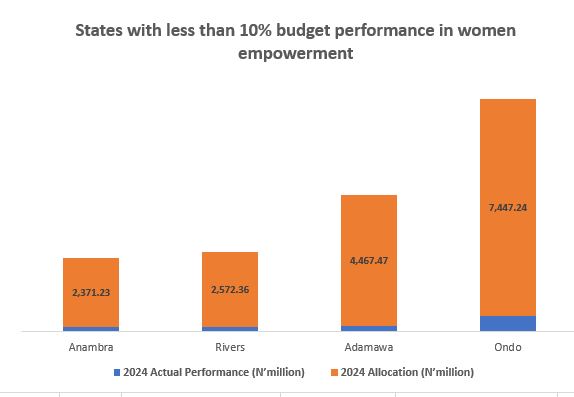Widespread skepticism about the competence of locally developed solutions, especially amongst companies in the country’s major sectors, is hindering the development of Nigeria’s indigenous software market, industry insiders have said.
The software industry is potentially a $6 billion industry, and with the federal government earnestly seeking to diversify its economy from oil, according to them, the local software market could have a transformative impact in terms of contribution to GDP. Industry insiders are of the view that the indigenous software developers have the capacity to deliver quality and innovative software solutions that can drive the processes of critical sectors of the economy, and have been doing so.
According to them, locally developed software solutions are not being adopted¬†because some of the industry‚Äôs success stories are not been celebrated. ‚ÄúMany¬†of the industry‚Äôs success stories are not being told. Because this is not¬†happening, the market is not responding by buying local software.‚ÄĚIf this¬†is not happening, new entrants cannot be encouraged to come into the¬†market‚ÄĚ, said Yele Okeremi, chief executive officer of Precise Financial¬†Systems (PFS), a local software development firm, in an interview with¬†BusinessDay.
Interestingly,¬†Nigeria‚Äôs current cheque truncation regime, mid-wifed by the Central Bank of¬†Nigeria (CBN) and Nigerian Inter-Bank Settlement System (NIBSS) is being driven¬†by locally developed software called ‚ÄėiTeller‚Äô. Cheque truncation however is¬†one of the instruments necessary for the actualisation of the cashless regime.
The current cheque truncation regime is planned to reduce the cheque clearing cycle from T+2 to T+1, and iTeller, developed by PFS is helping banks meet the mandate of the apex bank. iTeller application is a suite of integrated
solutions that comprises ATM based self-service cheque lodgement, cash lodgement/withdrawal and cashier’s desktop transport cheque scanning system for a state-of-the-art, end-to-end branch level cheque truncation capability, as
well as a slip-free banking experience.
The¬†greatest challenge for the local software industry is acceptability, according¬†to Okeremi. ‚ÄúMany people simply couldn‚Äôt come to terms with the¬†possibilities that we were presenting. Up till now, people still find it¬†difficult to believe that our software could have been made in Nigeria‚ÄĚ,¬†he said.
Lending his view, Chris Uwaje, chief executive officer at Connect Technologies, said, “for a very long time, Nigerians have been indoctrinated, intimidated and confused about software engineering knowledge and capability in the digital
realm. It is unacceptable to affirm that Nigerians cannot develop functional¬†software ‚Äď which sums up that Nigerians cannot think logically‚ÄĚ.
According to Uwaje, Nigeria’s core competence is not in heavy technology industry, but in the software knowledge industry.
This, he went on, means that the country needs to rethink its Information Communications Technology (ICT) development strategy as a critical imperative, as no nation succeeds in ICT development without a central focus on its core
competence. ¬†Over 100¬†Micro Finance Banks (MFB) in the country use ‚ÄėBankOne‚Äô, as core Information¬†Technology (IT) banking system to run their daily operations. BankOne is an¬†innovative platform licensed by indigenous technology firm AppZone, which¬†allows financial institutions to use mobile devices as data capture terminals¬†in a big step for ‚Äėbranchless‚Äô banking.
Another success story in Nigeria’s software arena is Remita. The software developed by SystemSpecs, a local software firm, has grown into a robust, integrated electronic payment platform deployed by banks, governments, and corporate
organisations for electronic payment, collection and payroll processing.
In spite of these strides recorded by local software developers, the National Office for Technology Acquisition and Promotions (NOTAP), says Nigeria has lost approximately $1 billion to foreign software imports and maintenance contracts
on an annual basis in recent times.
Large-scale buyers of foreign software include firms in most of Nigeria’s major industries, including banking, manufacturing, oil and gas, telecommunications, and the public sector. They all rely almost entirely on foreign operating systems.
The federal government needs to step up¬†efforts specifically in the area of policy formulation and implementation,¬†especially in the area of local content, in order to give the much needed push¬†to the local software industry. ‚ÄúThe local software industry in Nigeria has¬†been given limited attention by policy makers and other stakeholders, thus the¬†country is heavily dependent on foreign software, which accounts for over 90¬†percent of all software used in Nigeria‚ÄĚ, says Uwaje.
According¬†to him, Nigeria needs a software strategy, policy and legislation, which must¬†be accorded highest priority in all sectors. ‚ÄúIt can create three million jobs¬†and fire up the national economy‚ÄĚ, adds Uwaje. Okeremi share Uwajes‚Äô view that¬†government does have a big role to play in terms of creating the enabling environment¬†for the local software industry to thrive. ‚ÄúWhen you look at government¬†expenditure on Information Technology (IT), it is huge. We do not always have¬†to plunder our resources. ‚ÄúWe do not always have to use our resources to¬†stimulate other economies‚ÄĚ, notes Okeremi.
Nigeria’s local software market is expected to post a CAGR of 9.7 percent through 2017, according to the International Data Corporation (IDC), riding on the back of increased support from the private and public sectors.
The ministry of communications technology had declared earlier that ICTs contributed 8.3 percent of Nigeria’s Gross Domestic Product (GDP) by the second quarter (Q2) of 2013.
In 2012, however, ICT-related economic activity contributed 6 percent of GDP, up from 5.6 percent in 2011.
‚ÄúThere is over-dependence on foreign¬†importation of both software and hardware, and this has led to diminished¬†opportunities for domestic economic empowerment and contributed to limited¬†capacity building‚ÄĚ, said Omobola Johnson, minister of communications¬†technology in an interview.
Industry watchers say interest in software development is beginning to gather serious momentum. Some of the fallouts of this awakening, according to the industry analysts, are the emergence of software incubation centres, technology
accelerators, and growing participation of foreign Venture Capitalists (VCs), private equity players, as well as angel investors in Nigeria’s fledging technology start-up scene. But foreign software still dominates the country’s
software market.
Ben Uzor Jr & Michael Opeyemi 









